Are you ready to hit the open road and embark on an unforgettable road trip adventure? Whether you’re planning a cross-country journey or a weekend getaway, it’s crucial to ensure your safety and maximize the fun factor. Here are 10 road trip tips that will help you make the most of your adventure while staying safe on the highways and byways.
1. Plan Your Route and Itinerary
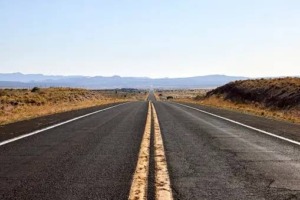
One of the first steps to a successful road trip is planning. Research your route, note interesting attractions along the way, and create a flexible itinerary. This ensures that you won’t miss out on any must-see stops and helps you stay organized.
Planning your route is about more than just picking the quickest path to your destination. It’s about crafting your adventure, setting the pace, and giving yourself room for spontaneity. You can use various apps and websites to map out your journey, highlighting scenic routes, historical landmarks, and hidden gems. The beauty of a road trip is that you can change your plans on a whim. Just make sure you have a general idea of where you’re going, and you’re ready for a fantastic journey.
2. Check Your Vehicle’s Condition

Before you set off, it’s essential to make sure your vehicle is in tip-top shape. Inspect your brakes, tires, and fluid levels. A well-maintained car not only keeps you safe but also helps you avoid breakdowns in the middle of nowhere.
Imagine this: you’re cruising down a winding mountain road, and your brakes start squeaking and shuddering. Not only is it a mood-killer, but it can also be dangerous. To avoid such situations, have your vehicle thoroughly inspected before hitting the road. Change the oil, check the transmission, and don’t forget about the tires. Make sure they’re properly inflated and have enough tread. If you’re unsure about your car’s condition, it’s worth investing in a professional inspection.
3. Pack an Emergency Kit: Vital Road trip tips
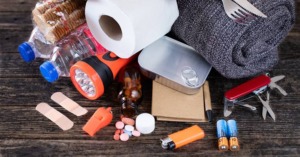
Accidents happen, so be prepared. Assemble an emergency kit with items like first aid supplies, a flashlight, blankets, and basic tools. Having these essentials on hand can be a lifesaver in unexpected situations.
You might think you’ll never need that emergency kit, but it’s better to have it and not need it than the other way around. While you hope your road trip will be smooth sailing, it’s wise to be prepared for unforeseen circumstances. Your emergency kit should include items such as band-aids, antiseptic wipes, pain relievers, and any necessary prescription medications for your group. Additionally, having a flashlight, spare batteries, and a multi-tool can come in handy for unexpected repairs or navigating in the dark.
4. Follow Traffic Rules and Avoid Distractions

This tip may seem obvious, but it’s worth repeating: obey traffic rules and avoid distractions while driving. Keep your focus on the road, use a hands-free device for phone calls, and drive responsibly.
You might be eager to snap pictures of the stunning scenery, but never compromise safety for the sake of a selfie. Distracted driving is a leading cause of accidents, and it’s essential to prioritize safety above all else. Adhere to speed limits, use your turn signals, and be aware of local traffic laws, which can vary from place to place. Moreover, if you’re tempted to send a quick text or answer a call, pull over to a safe spot first.
5. Take Breaks and Prevent Fatigue
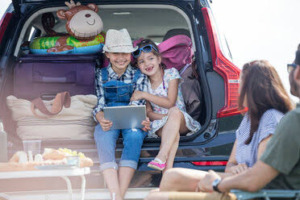
Long drives can be exhausting. Combat fatigue by taking regular breaks. Stretch your legs, get some fresh air, and have a quick snack. It’ll help you stay alert and enjoy the journey more.
Driving for hours on end can be draining, and it’s essential to know your limits. If you’re feeling tired or drowsy, pull over at a rest area or a scenic spot and take a break. A short walk or some stretching can do wonders for your energy levels. You’ll be amazed at how much more enjoyable your road trip becomes when you’re well-rested and alert.
6. Stay Hydrated and Have Healthy Snacks

Staying hydrated is essential, especially during long road trips. Bring a reusable water bottle and pack some healthy snacks to keep your energy up. Avoid excessive caffeine or sugary drinks, as they can lead to crashes in energy.
Dehydration can make you feel sluggish and irritable, which is the last thing you want on a road trip. Always have a reusable water bottle on hand and take sips regularly. As for snacks, opt for healthy options like nuts, fruits, and granola bars. These foods provide sustained energy and prevent the sugar crashes associated with unhealthy, sugary snacks and drinks.
7. Secure Your Luggage and Valuables
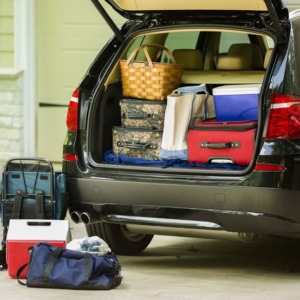
Make sure your luggage and valuable items are secure in your vehicle to prevent theft. If you’re leaving your car for sightseeing, consider using lockable storage solutions or hide valuable items out of sight.
It’s easy to get caught up in the excitement of a road trip and forget about the safety of your belongings. When you park your car to explore a new place, take a moment to ensure that your valuables are out of sight. You can use the trunk or a locked roof box to store your luggage and personal items securely. Remember that some places might be more prone to theft than others, so be extra cautious in crowded tourist areas.
8. Research Rest Stops and Accommodations

Planning where to rest and spend the night is vital. Research rest stops, gas stations, and accommodations along your route. This ensures you won’t find yourself in a predicament when you need a place to refuel or rest.
Rest stops and accommodations can make or break your road trip experience. It’s essential to research and plan ahead, especially if you’re traveling during peak tourist seasons when accommodations fill up quickly. Online booking platforms and apps can be invaluable for securing a place to stay. Plus, they often provide reviews and ratings from fellow travelers, giving you insights into the quality of the accommodations you’re considering.
9. Keep a Backup Navigation Option
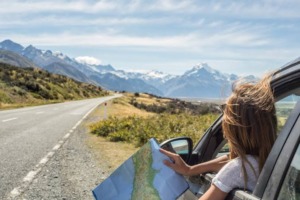
While GPS on your smartphone is fantastic, it’s not infallible. Always have a backup navigation option, like a paper map or a dedicated GPS device. This guarantees you won’t get lost if your smartphone’s battery dies or signal is lost in remote areas.
Modern technology has made navigation incredibly convenient, but it’s not foolproof. Mobile phone signal can be weak or nonexistent in remote areas, and your device’s battery might run out at an inopportune moment. To avoid getting lost, keep a paper map or a standalone GPS device in your vehicle. These backup options can be real lifesavers when your digital tools fail you.
10. Inform Someone of Your Plans
Lastly, for added safety, let someone know about your travel plans. Share your itinerary with a trusted friend or family member. In case of an emergency, they’ll have a general idea of your whereabouts.
Even the most seasoned road trippers can encounter unexpected situations. To ensure your safety, it’s a good practice to share your travel plans with someone you trust. Provide them with a detailed itinerary, including your route, planned stops, and accommodations. This way, if you ever encounter problems, someone will know where to find you or who to contact for assistance.
In conclusion, a successful road trip combines adventure with safety. By following these road trip tips, you can enjoy the journey to the fullest while ensuring a secure and memorable experience on the road. So, start your engines and hit the road for the adventure of a lifetime! Road trips are about creating memories, exploring new places, and discovering the beauty of the world, so remember to savor every moment of your journey.
